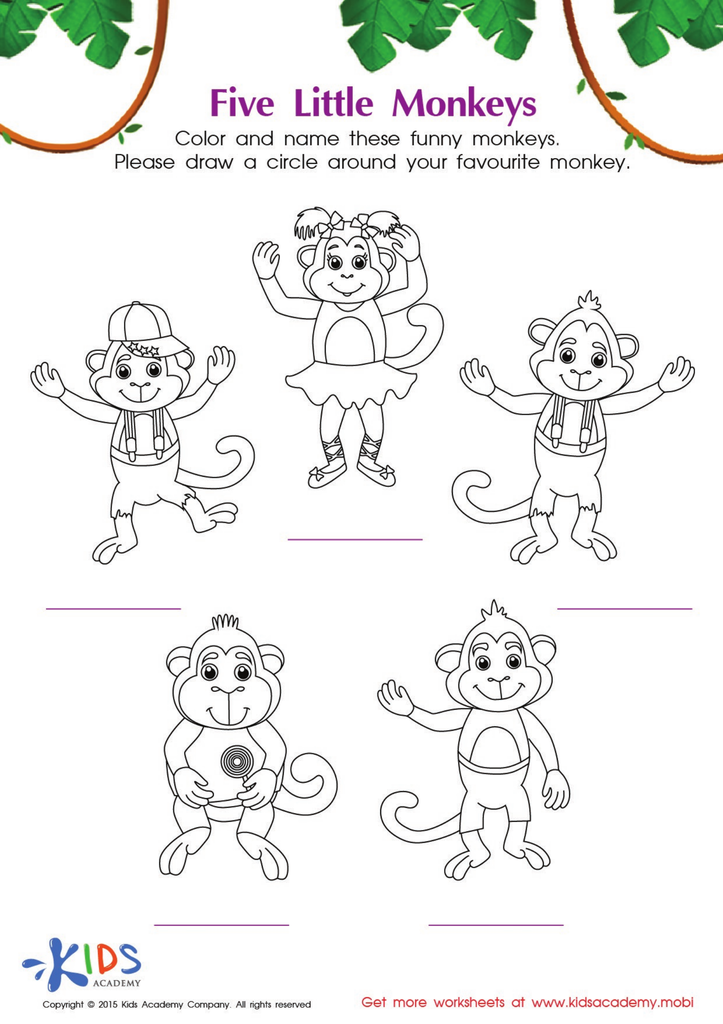Basic counting skills Reading Worksheets for Ages 4-6
3 filtered results
-
From - To
Introduce your little learners to the fun world of numbers with our Basic Counting Skills Reading Worksheets for ages 4-6! Designed to foster early numeracy, these engaging worksheets incorporate appealing visuals and interactive activities to make counting enjoyable. Perfect for preschool and kindergarten students, our resources promote critical thinking and fluid reading skills through relatable counting concepts. Whether it's counting objects, recognizing numbers, or simple number writing, our worksheets aim to build a strong foundation for future math success. Download your free worksheets now, and watch your child's confidence grow as they embark on their counting journey!


The Five Little Monkeys Coloring Worksheet


Twinkle, Twinkle, Little Star – Coloring by Numbers
Basic counting skills are foundational for children's cognitive development and crucial for their future academic success. For children ages 4-6, mastering counting goes beyond merely reciting numbers; it sets the stage for understanding numeric relationships and manipulating quantities. This age group is at a critical point in their learning journey, where they can more effectively engage in activities that promote math readiness, such as sorting, patterning, and simple addition and subtraction.
Parents and teachers should care about these skills because numeracy is linked to later proficiency in math, which is a key predictor of overall academic achievement. Children who develop a strong foundation in counting also enhance their problem-solving abilities and logical thinking. Additionally, simple counting exercises can improve fine motor skills, language development, and cognitive coordination, making them multidimensional learning experiences.
Moreover, familiarizing young children with counting helps foster a sense of curiosity about the world around them. Engaging in counting games or daily activities like counting toys, snacks, or steps can make learning enjoyable and less intimidating. By nurturing these basic counting skills, adults can ensure that children build the confidence and skills necessary for higher-level mathematics, better preparing them for future educational challenges.





















